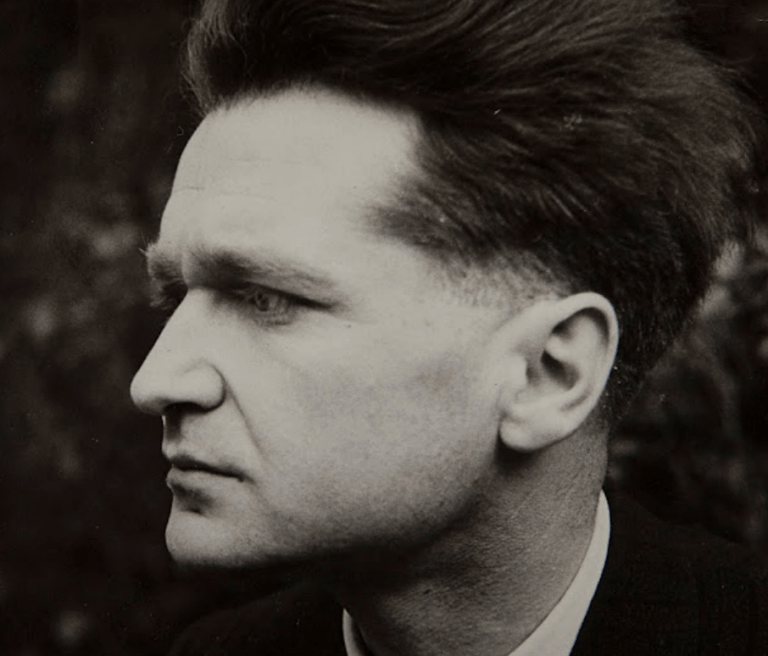We are surprised by many of Emil’s Cioron. Su raw realism and his brazen pessimism are a bucket of cold water for consciousness. This Romanian philosopher did not like rodeos and looked with a decision at all the aspects he considered worthy of reflection.
It is clear that the purpose of this thinker was not exactly to raise someone’s morale, in emil Cioron’s sentences it is clear that he liked to provoke, I liked to go against the current, because it was also a way of denouncing the banalities and inconsistencies of the world in which I had to live.
- What we find in Emil Cioron’s Phrases is a deep destenchant.
- Which ends up being a challenge for light or overly romantic life models.
- The encounter with this thinker causes some impact on many people.
- Take a look at some of his most memorable phrases below.
“It is not violent evils that mark us, but the deaf evils, the insistent, the tolerable, that are part of our routine and meticulously undermine us over time. ” – Emil Cioron-
This is one of Emil Cioron’s many phrases full of intelligent irony and common sense. It’s about, “The last ones we forgive your infidelity are those we disappoint. “
It’s a clear and profound statement. When someone does not live up to the expectations of the couple, he knows that the one who fails is himself, not the other, infidelity would be a way to confirm this deficiency, so it is difficult to forgive this infidelity: it is a way of accepting this initial disappointment, a narcissistic wound that hurts a lot.
The sense of humor is present in many of Emil Cioron’s phrases, it is a black and caustic atmosphere. This can be seen in the following statement: “What I know at sixty, I already knew at twenty. Forty years of long and superfluous test work ?.
Maybe he’s right. There are many truths in life that are intuitive from the beginning. However, young people are not quite sure what they perceive. A successive series of tests is required, which in many cases only provide infinite repetition.
Emil Cioron had no problem going against what was considered a productive or successful life, nor was he interested in hiding the deep disappointment that inspired his existence, quite the opposite: he sank into the wound.
The next sentence says it all about him: “My mission is to kill time, and time, in turn, is to kill me. Is it comfortable being among the killers? Death and suicide were present in many of his works. He insisted that existence would only make sense when spent, as something that is useless.
Much of society believes that the most important thing is to do, do and do even more. Standing still and being unproductive is a real blasphemy. However, as we did so much, we became so restless that anxiety began to overwhelm us.
In the face of this, Emil Cioron said: “We can be proud of what we have done, but we should be much more proud of what we have not done. Is this pride to be invented? Your vision makes sense, but he?No, it also has consequences, which in such a compulsive and automated world can be positive.
Cioron had some contempt for the figures of power and, as an iconoclast, never gave much credit to heroism, nor to the great exploits of those who fight in the name of an ideological cause.
His position on this subject is perfectly clear in the following sentence: “Who rebels?Who takes up arms?. In this way, he equates the rebel with the oppressor, indicating that the two have the same essence. The slave, as such, always obeys.
Emil Cioron did not see human beings as a superior species or with something memorable, on the contrary, he has repeatedly highlighted the despicable way in which human beings live and populate the earth.
Part of this perspective is reflected here: “Only the hidden is deep and true. Hence the force of vile feelings. That is, the human being hides his vile feelings and, precisely because of this, they emerge with more force when they Appear.
Although Ciorán was not happy and expressed this fact many times, he was also not a “sick”. Rather than feeling pain for life, or for the experiences he had accumulated, what he did was ironically reveal inconsistency, adopting a style appreciated by the singulars.
Therefore, it is not strange that he was critical, even in relation to the issue of suffering. On this subject, he said: “Suffering is the way to be active without doing anything,” that is, those who suffer live in the midst of a storm, inactive, without launching an adaptation strategy that reduces it.
There are many other Emil Cioron phrases that are quite interesting and have been set aside. Emil Cioron’s reading, despite the dark tone he uses to deconstruct reality, is a delight as a reflection stimulant.

